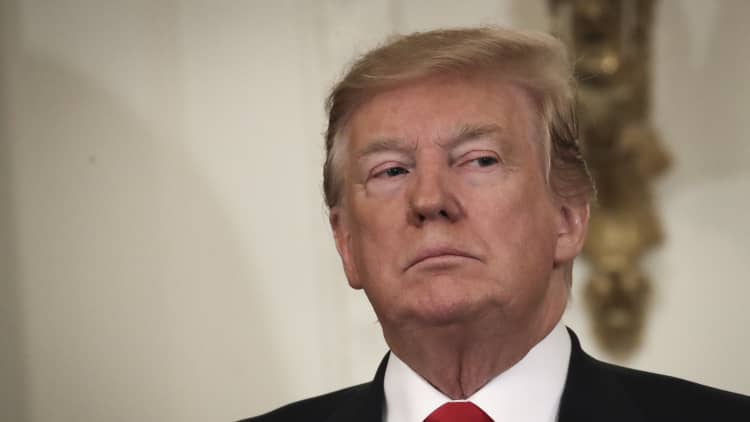
CNBC's Jim Cramer on Monday said he expects "more capricious behavior" from President Donald Trump as the 2020 race for the White House heats up.
"His poll numbers are at a two-year high, so he's lost interest in what's happened in the stock market," Cramer said on "Squawk on the Street."
According to the latest Harvard CAPS/Harris Poll, Trump's approval rating hit 48%. The last time that survey showed a level that high was in June 2017. The Harvard CAPS/Harris Poll shows the highest approval rating for the president among the polls tracked by Real Clear Politics.
The latest shock, Cramer said, was Trump's threat last week to place 5% tariffs on all Mexican goods, starting June 10, if Mexico doesn't substantially curb illegal immigration to the U.S.
"I don't know where he's going to strike next," the "Mad Money" host said. When Trump announced the tariffs on May 31, Cramer said the threat was "all kind of astonishing."
Last year, Mexico was the second-largest importer of goods into the U.S., according to the Office of the U.S. Trade Representative. Companies that rely on Mexican goods, such as Chipotle Mexican Grill, face rising price levels. In fact, Chipotle told CNBC that tariffs on Mexican goods could increase its costs by about $15 million in 2019.
"We're beginning a new era," Cramer said Monday. Trump believes he's in a win-win situation for 2020 regardless of where the economy goes, Cramer said, stressing the importance of Friday's May employment report.
Stocks bounced off early lows Monday as trade threats intensified. The Dow Jones Industrial Average is coming off six consecutive weeks of declines for the first time in eight years. The and Nasdaq are on four-week losing streaks — with the Nasdaq, as of Friday's close, about 1% away from the 10% correction threshold.


